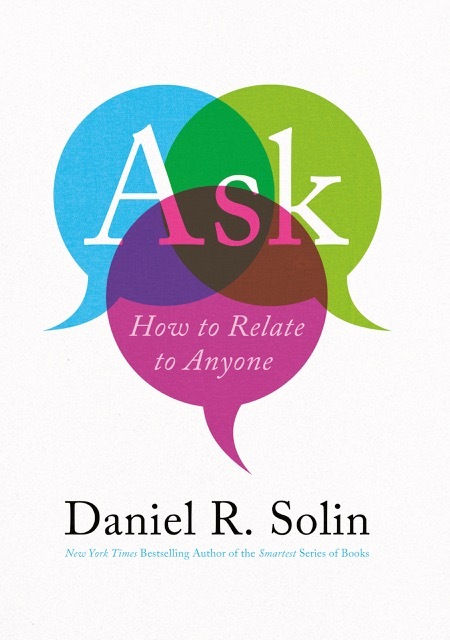
Most sales training is based on little more than myths and folklore. It’s time to take a fresh look.
When I ask salespeople to tell me their process for closing a sale, they’re never at a loss for words. Everyone has their own, unique process (ranging from simple to complex), which they’re eager to share.
Then I ask this question: Do you have any studies or other research supporting your sales process?
That’s when I get the deer-in-the-headlights look.
When I look at sales training courses and read books on sales, there’s lots of advice, but few footnotes and often no bibliography. Then I did the research for my book: Ask: How to Relate to Anyone. I found you can significantly boost your sales by:
- Talking less; and
- Asking more questions.
It’s not complicated and it’s backed by science.
Sales Training Should Be Based on Science
Sales training has a lot in common with self-help books. Frequently, both genres offer simplistic advice, with the promise of big returns for little effort.
Steven Novella, an academic clinical neurologist at the Yale University School of Medicine, observed in a Neurologica blog post titled “Firewalk Mishap” that “the big sellers in the self-help industry seem to be completely disconnected” from published evidence. According to Novella, “What they are selling are made-up easy answers, personality and gimmicks.”
There’s ample evidence from the fields of psychology and neuroscience supporting an evidence-based approach to boosting sales.
Talk Less
If you want to boost your sales, talk less. Most of us believe what we’re saying is more important than what the other person is saying. Often, we aren’t even listening. We’re busy preparing our response.
How much do we talk about ourselves? It turns out, a lot
An analysis of Twitter messages on Academia.edu found the percentage of communications focused on ourselves approached 80 percent. Sharing information about ourselves was so prevalent that researchers coined a new term, “meformers” (as contrasted with “informers”), to describe those creating this content.
Studies have shown that most of us attempt to redirect attention to ourselves and our experiences when we’re engaged in a conversation.
Why do we do that? It turns out there’s a scientific explanation. When we talk about ourselves, we release the highly pleasurable hormones of oxytocin and dopamine.
According to the Hormone Health Network, oxytocin is a hormone produced deep within the brain, in the hypothalamus. It then enters the bloodstream and is carried to target cells around the brain and body where it exerts its effects.
Oxytocin levels are increased during sexual arousal, trust, and mother-infant bonding. That’s why oxytocin has been called the “love hormone” and the “cuddle chemical.” There’s evidence that the release of oxytocin “makes people more generous, cooperative, empathetic and constructive,” causing us to trust others. It also makes us feel safe and increases our capacity to be close to and sensitive to others.
Dopamine is another powerful hormone. According to Psychology Today, the release of dopamine motivates us to achieve our goals and rewards us with a feeling of satisfaction. Levels of dopamine increase when the brain recognizes reward or pleasure. When we feel really good (eating our favorite foods, for example) our dopamine levels increase.
Both oxytocin and dopamine make us feel good. They are critical components in the complex neurochemical balancing act within our brain.
So, why do we talk about ourselves so much? It’s chemical. It feels good.
Ask Questions
When you ask someone questions, you increase their level of these hormones. They will feel great about themselves…and you.
The study that was my “aha” moment was done by researchers at the Harvard University Social Cognitive and Affective Neuroscience Lab.
Participants were asked to bring a friend or relative to the laboratory. While inside an MRI scanner that measured their brain activity in real-time, they alternatively shared their own opinions and attitudes, discussed the opinions of others, or answered a trivia question. When they disclosed their own opinions, they were then told whether their responses would or would not be shared with the friend or relative they brought to the lab.
The findings were stunning.
The researchers discovered that when participants talked about themselves – even when they didn’t think anyone else would share in these disclosures – there was “robust activity in those neural regions implicated in reward processing.” Those parts of the brain associated with highly pleasurable activities lit up.
Activity in the regions of the brain that reflect highly pleasurable activities was lit up even more when participants were told their answers would be shared with their friend or relative.
The researchers theorized that oxytocin and dopamine flooded the reward centers of the brain when participants talked about themselves.
If we talk about ourselves, we release “happiness” hormones in our brains. We feel great.
When you empower others to talk about themselves, happiness hormones are released in their brain. Magical things happen. They view you as likable, trustworthy, and even interesting.
Those are precisely the traits that make them want to do business with you.
The asymmetry between what is happening for the speaker and listener is quite telling. When you dominate the conversation, the neurochemicals your listener experiences are the same as those released when they’re in physical pain!
You don’t intend your conversation to cause pain, anxiety, and stress, yet that’s precisely what occurs if you are doing most of the talking. It’s a surefire way to lose the sale and impair the relationship.
If you want to boost your sales, focus on retraining your brain from conveying information to eliciting it. Don’t prepare “presentations” for meetings with customers. Instead, compile a list of soft, open-ended questions intended to elicit what’s on the mind of your customer.
You’ll be surprised at the difference.



